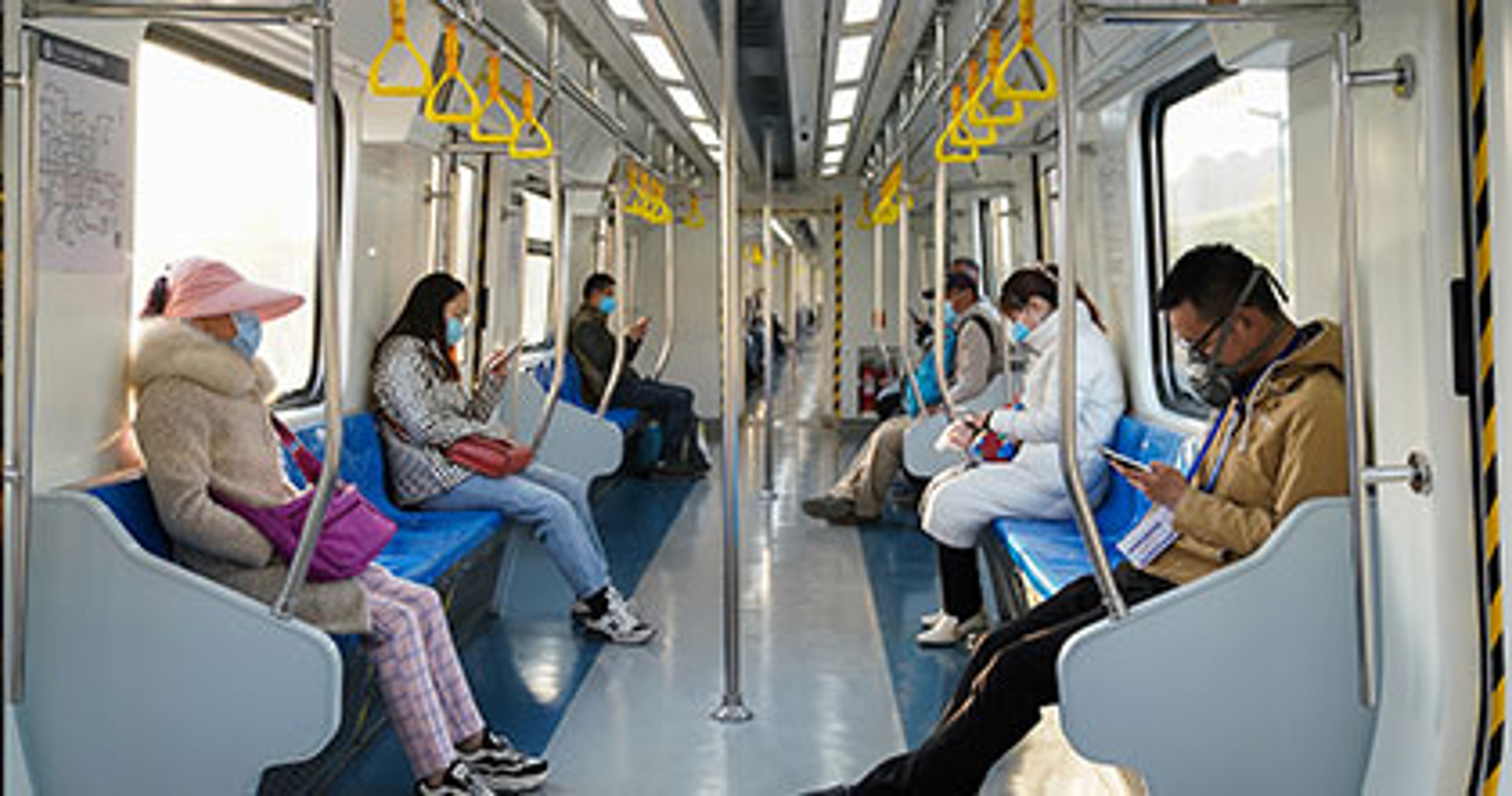Weekend Roundup: Cybernetics of the Plague

Solidarity through social distancing. (Getty)
Before the coronavirus pandemic descended on the world, much attention had been focused on the growing ranks of disillusioned youth, like Greta Thunberg, who renounced mass consumer society and its addiction to fossil fuels for propelling the planet on a trajectory toward climate calamity.
Some lauded her plainspoken courage. Others resented her zealous preaching. Most, though sympathetic, were not shamed to the point of altering daily habits that fueled the beast. Climate change, it seems, was experienced as a kind of rumor from afar, like a virus spreading through the population of distant Wuhan.
The eclipse of the child renouncers by the mass deaths of the elderly who contracted COVID-19 has revealed that compelling link climate activists could never muster: the real-time, direct experience of urgent danger. The ecological idea that we are all in this together suddenly attained an existential meaning.
The global lockdown put in place to cope with that danger has so dramatically reduced the demand for fossil fuels that crude oil prices have dropped below zero. The retreat into home sheltering for the sake of survival has emptied factories, offices, freeways and shopping malls. At least temporarily, Greta’s dream has been realized. We’ve been knocked off the relentless treadmill, opening the pathway for a reset of the perilous trajectory we were on.
The pertinent question is whether the COVID experience will conflate with the longer-term time horizon of climate change and alter those self-reinforcing behavioral loops that are unsustainable? Or, like a backsliding dieter or alcoholic who falls off the wagon, will everything return to “normal” as soon as smart phone tracing, mitigating therapeutics and a vaccine arrive?
Jared Diamond is hopeful. In a conversation about his recent book, “Upheaval: Turning Points for Nations in Crisis,” he offered this observation: “The main new lesson,” of the pandemic, he told me, “concerns an extension of national identity, which is important for nations facing a crisis. The current crisis may help us develop a global identity by making it obvious that we are all in the same boat, all people everywhere in the world. We are realizing now that COVID-19 is everyone’s problem — as is climate change, resource depletion, inequality and the risk of nuclear weapons.”
For Diamond, it is often an unexpected shock to the system that finally shakes a society out of complacency. Those nations that possess a realistic self-appraisal, selectively adopt best practices from elsewhere, have the capacity to learn from mistakes and have the flexibility for social and political compromise manage best. So far, those entities that meet these criteria, he says, include Singapore (at least before the resurgence in neglected immigrant tenements), Taiwan and California. “Doing poorly were initially the government of Italy and now, worst of all, the federal government of the U.S.”
Perhaps the most insightful perspective on how to break out of a cycle of destructive behavior and shift to a new trajectory came from the anthropologist Gregory Bateson. He employed the prism of cybernetics and systems theory to study the success of Alcoholics Anonymous in his 1963 essay “The Cybernetics of the ‘Self’: A Theory of Alcoholics.”
For Bateson, whose seminal work was titled, “Steps to an Ecology of Mind,” the notion that self-control by the individual could escape the currents of self-reinforcing habits was an illusion. The recursive pathways of the “mind” that set those habits are not within the individual alone, but encompass the entire environment with which we interact and receive feedback signals. Only if we recognized this interdependence would we be able to sustain a shift to another track. As the COVID crisis has shown so clearly, we are all complementary parts of a whole system which together determines what course we take. In short, we can only get out of this together if we all understand we are in this together.
It remains an open question whether our experience of personal fragility in the face of the global pandemic will lead to a shift toward collective resilience on many fronts, as Diamond suggests. The nationalistic responses that have abounded in many places across the world, akin to the illusion of effective individual action, are not a good sign that we can break out of the negative feedback loops of the trajectory that so worries the likes of Greta Thunberg.
“Our most acute concern,” says Helle Thorning-Schmidt, the former prime minister of Denmark, “should be that the coronavirus pandemic will change very little or nothing at all. That everything changes, but everything stays the same. That is precisely what happened in 2008: We won the war, in the sense that a total economic meltdown was averted, but we lost the peace.” For all our sakes, let’s hope the depth and breadth of the crisis this time finally leads to an ecology of mind.